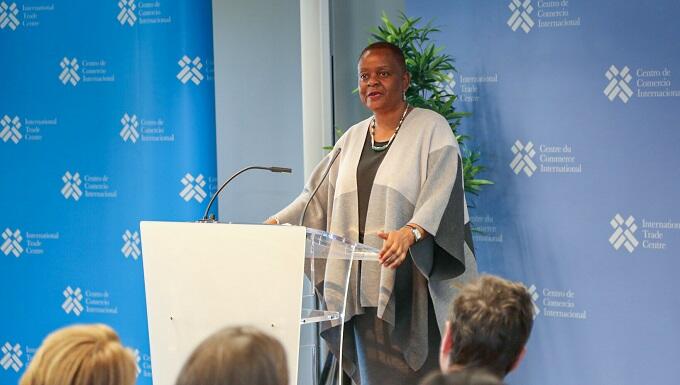
Op-ed: COVID-19: Africa’s failure would be the world’s failure
There is no doubt that the coronavirus pandemic will bring about the most significant global economic changes that will be felt for generations. We see this with every new report of rising fatalities and closing businesses. For most countries, the impact will be severe, but for developing countries – and those in Africa in particular – it could be catastrophic.
I welcome the funding efforts that are now gathering momentum to shore up fragile health systems across Africa. If health sectors in developed countries are buckling under the unbearable weight of COVID-19, one can only imagine the impact on the health sector in certain African countries, in some cases still reeling from the Ebola epidemic.
Cost of COVID-19 on global economic system
United Nations Secretary-General Antonio Guterres has described the COVID-19 crisis as the most significant test humanity has faced since World War II.
He called for the creation of a $2 billion fund to support the most vulnerable countries during this crisis. But the cost of the coronavirus pandemic on the global economic system will require substantially more.
What developing countries need, in addition to support for their health sectors, is support to keep their economies afloat and protect micro, small and medium-sized enterprises (MSMEs) from going out of business.
For every bankruptcy, closed store, unpicked crop or drop in online orders, people will lose jobs and families will, in many cases, lose their only income.
The International Labour Organization, (ILO), recently predicted that 25 million jobs could be lost worldwide as a result of COVID-19.
For Africa – which should be creating 12-15 million jobs annually to keep up with a growing population – these figures could be catastrophic. The global downturn risks putting the continent into a negative, downward spiral.
Losses across in trade
A number of the exporting companies that my organization, the International Trade Centre, are working with have lost their incomes overnight following a massive drop in demand from European customers.
Take Florencia Blooms, for example, a Kenyan flower grower and exporter ITC works with.
The company is is now only exporting at 30% capacity and is increasingly unable to ship its produce given the air freight disruptions. Worse, COVID-19 has come during the industry’s peak season, aggravating the impact. As Kenya’s flowers wither, thousands of workers are at risk of losing their jobs. While developed countries have resources to stitch together social safety nets, people or companies in developing countries often have nothing to fall back on when the economy fails.
Banks feeling the heat
Africa’s banks will increasingly feel the heat, too, with the possibility that they will be unable to provide the much-needed life-support to MSMEs in the forms of loans, credits and debt relief in the long run, as they, too, may require funding to stay afloat.
While pumping liquidity into banks, as South Africa has done, will temporarily ease some of this pressure, there is only so much that such lifelines can do.
Waive principal payments
Other measures, such as the suspension of debt-interest payments, called for by African leaders as well as by the IMF and the World Bank, will lessen some of the stress on Africa's economies.
I join the call on creditors to temporarily waive principal payments for developing countries and the poorest and most vulnerable economies, including highly indebted small island developing states dependent on tourism as their primary (or only) income.



